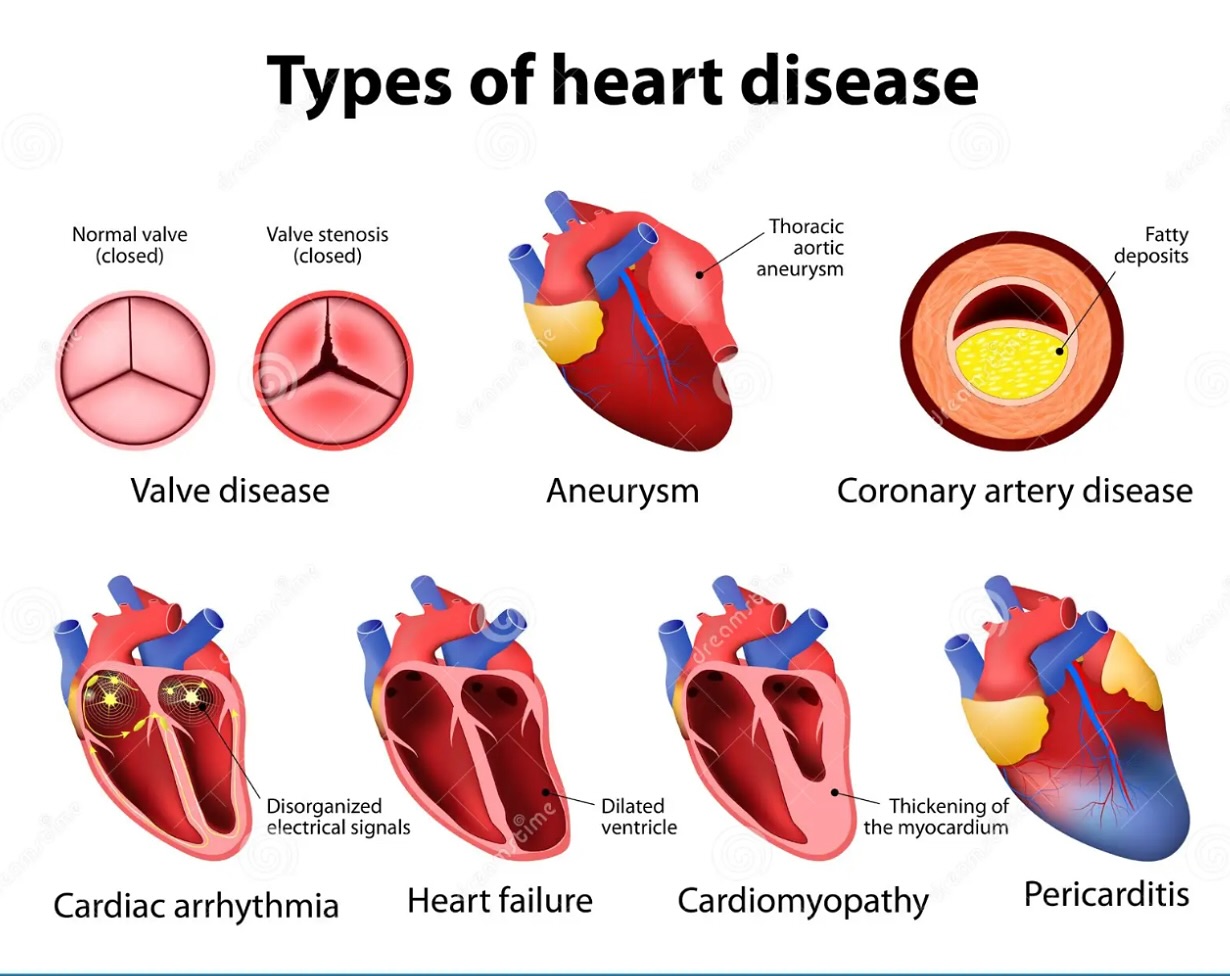Heart Disease
Heart disease refers to a range of conditions that affect the heart’s structure and function. These conditions include coronary artery disease, arrhythmias (heart rhythm problems), heart valve disease, heart infections, and congenital heart defects (heart problems present at birth). Below are key points about heart disease:
### Types of Heart Disease
1. **Coronary Artery Disease (CAD):** The most common type, caused by the buildup of plaque in the heart’s arteries, which can lead to heart attacks.
2. **Arrhythmias:** Abnormal heart rhythms that can cause the heart to beat too fast, too slow, or irregularly.
3. **Heart Failure:** A condition in which the heart can’t pump blood effectively to meet the body’s needs.
4. **Valvular Heart Disease:** Involves dysfunction of one or more of the heart valves that regulate blood flow through the heart.
5. **Congenital Heart Defects:** Heart abnormalities present at birth.
6. **Cardiomyopathies:** Diseases of the heart muscle that make it harder for the heart to pump blood to the body.
### Causes and Risk Factors
– **Lifestyle Factors:** Poor diet, lack of exercise, smoking, and excessive alcohol consumption.
– **Medical Conditions:** High blood pressure, high cholesterol, diabetes, obesity, and chronic kidney disease.
– **Genetics:** Family history of heart disease.
– **Age:** The risk increases with age.
– **Sex:** Men are generally at higher risk at a younger age, but the risk for women increases and can surpass that of men after menopause.
### Symptoms
Symptoms vary depending on the type of heart disease but may include chest pain, shortness of breath, palpitations, lightheadedness, dizziness, fainting, and swelling in the legs (edema).
### Prevention and Treatment
Prevention focuses on lifestyle changes such as maintaining a healthy diet, regular exercise, quitting smoking, controlling blood pressure, cholesterol, and diabetes, and managing stress. Treatment options depend on the type and severity of heart disease and can range from lifestyle changes and medications to invasive procedures like angioplasty or surgery, including heart bypass or valve repair/replacement.
### Importance of Regular Check-ups
Regular medical check-ups can help detect heart disease early. Health professionals can recommend preventive measures and treatments to manage risk factors effectively.
Heart disease remains a leading cause of death globally, but many forms of heart disease can be prevented or treated with healthy lifestyle choices and medical interventions.

